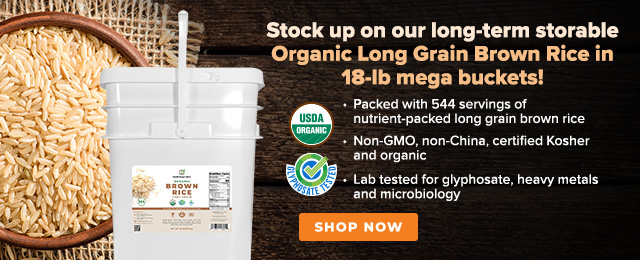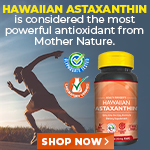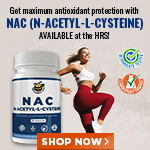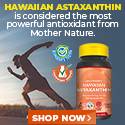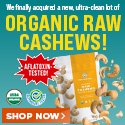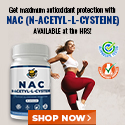
Six Baby Bottle Manufacturers Quietly Agree to Remove Bisphenol-A (BPA) from Baby Bottles
 Monday, March 09, 2009 Monday, March 09, 2009by Mike Adams, the Health Ranger Editor of NaturalNews.com (See all articles...) Tags: BPA, Baby Bottles, health news |
- When the MASS MEDIA is backing your movement, you are NOT the "RESISTANCE"
- Elon Musk’s Starlink revolutionizes off-grid communication with portable satellite solutions
- Mainstream media finally admits lockdowns were a disaster
- Zuckerberg's Meta: A double game on China and censorship
- Democratic Party used taxpayer dollars to fund THUG UKRAINIAN SPIES to target Vice President J.D. Vance and other American leaders
- Death by CHEMICAL RESTRAINTS: How Australia’s elderly and vulnerable were SEDATED into early graves during the COVID scandal
- RFK Jr. to take on the FDA’s GRAS loophole, which has allowed corporations to poison America’s food supply for decades
- RFK Jr. takes on Big Pharma: How diet could end the antidepressant era
- Tiny plastic beads could revolutionize energy generation
- China’s galactic gamble: An orbiting SOLAR ARRAY to revolutionize renewable energy
- Zelensky's arrogance and entitlement cost Ukraine more territory and lives as RUSSIA ADVANCES, taking Constantinople
- Migrants are taking advantage of recent hurricanes to scam residents and loot their homes
- Ballot drop boxes set ablaze in Oregon and Washington, prompting security concerns ahead of election
- Modern science uncovers brain-boosting power of ancient spice coriander and its key compound linalool
- The Health Ranger releases “Vaccine Zombie” song and music video, using AI-animated zombies for the music video
- Former horse rancher and 6,000 other plaintiffs are suing Syngenta after paraquat exposure led to Parkinson's Disease
- Israeli soldiers accused of even more torture and abuse in the West Bank
- Introducing the DOGE NETWORK: Trump and Musk should broadcast 24/7/365 every update exposing all financial fraud and embezzlement of Democrats
- California's social media censorship law struck down: A victory for free speech or a threat to online safety?
- The Health Ranger releases “Vaccine Zombie” song and music video, using AI-animated zombies for the music video
- EPA advisor admits the agency is funneling billions to climate groups ahead of Trump’s return to White House
- Former horse rancher and 6,000 other plaintiffs are suing Syngenta after paraquat exposure led to Parkinson's Disease
- Modern science uncovers brain-boosting power of ancient spice coriander and its key compound linalool
- Congratulations to the FULLY UNVACCINATED as you resisted the COVID-19 PROPAGANDA MACHINE fueled by over $100 BILLION
- Michigan sheriff announces criminal investigation into 2020 election crimes, Dominion Voting Systems
- Florida takes a stand: DeSantis proposes permanent ban on mRNA vaccine mandates
- Ballot drop boxes set ablaze in Oregon and Washington, prompting security concerns ahead of election
- Migrants are taking advantage of recent hurricanes to scam residents and loot their homes
- Israeli soldiers accused of even more torture and abuse in the West Bank
- Peter Rost exposes Big Pharma corruption in his book “The Whistleblower: Confessions of a Healthcare Hitman”
- The pandemic as a tool for INDOCTRINATION: Understanding “The Indoctrinated Brain” by Dr. Michael Nehls
- House Intelligence Committee calls for the ARREST and PROSECUTION of Dr. Anthony Fauci
- Russia warns citizens against traveling to the United States, Canada and the European Union
- Jena Griswold “breaks” 2024 election in Colorado: Results will be 100% non-certifiable, warns Patrick Byrne
- Sermon 30: How Jesus reveals Caesar’s FAKE CURRENCY and FALSE AUTHORITY
- Trump administration takes on global censorship: A new frontier for free speech advocacy
- EPA advisor admits the agency is funneling billions to climate groups ahead of Trump’s return to White House
- RFK Jr. clears key hurdle: Sen. Susan Collins backs controversial HHS nominee, signaling a new era for health policy
- Congratulations to the FULLY UNVACCINATED as you resisted the COVID-19 PROPAGANDA MACHINE fueled by over $100 BILLION
- The Health Ranger releases “Vaccine Zombie” song and music video, using AI-animated zombies for the music video
- Global leaders unite to clamp down on “misinformation” with UN-backed Cascais Declaration
- DIRTY VACCINES: Dr. Anthony "Fraudulent" Fauci, King of the Covid scamdemic, admits "We don't do placebo trials on vaccines"
- Fake "CLIMATE CHANGE" will continue to devastate any regions the globalists and ruling elite want to purchase at a discounted price
- Mint: The ancient herb that refreshes, soothes and heals
- Trump administration takes on global censorship: A new frontier for free speech advocacy
- South Korean banks halt silver bar sales amid global and domestic uncertainty
- Democrats cry as “liberal supply chains” are wiped out and their favorite multi-billion dollar money machine is shut down
- The pandemic as a tool for INDOCTRINATION: Understanding “The Indoctrinated Brain” by Dr. Michael Nehls
- PBS shutters DEI office in wake of Trump’s executive order
- Ex-FBI Chief EXPOSES disgraceful government coverups of Oklahoma City Bombing, Kennedy assassinations, 9/11 WTC, and "Terrorism" as plot to destroy Constitution
- “Cancer Gag Act” threatens farmers’ rights and public health: A dangerous push for corporate immunity
- Federal judge backs Trump's mass firings, clearing path for government downsizing
- Trump's impressive political comeback against all odds makes headlines around the world
- Deep State Power Grab? Corporate Transparency Act threatens nonprofits and small businesses – Andy Schlafly discusses potential impacts with Mike Adams
- Red Cross issues warning to stop blood plasma donations from vaccinated people
- Scientists confirm: GENIUS brain function can be spontaneously unleashed in humans without any apparent cause
- HYSSOP: What research reveals about the health benefits of this ancient holy herb
- EPA advisor admits the agency is funneling billions to climate groups ahead of Trump’s return to White House
- Two containers with completed ballots fall out of truck in Florida
- Fully vaccinated about to see “tsunami” of illness and death, warns virologist
- Today I asked our AI language model “Neo” about which phytonutrients or phytochemicals can block the spike protein related to SARS-CoV-2 … Here is what it answered…
- Global leaders unite to clamp down on “misinformation” with UN-backed Cascais Declaration
- DATA: England’s vaccinated population had close to one million deaths in 23 months; unvaccinated population had less than 61,000 deaths over the same period
- BREAKING: 2025 NDAA authorizes mandatory military draft of WOMEN across America… as Pentagon pursues global NUCLEAR war with both Russia and China at the same time
- ENGINEERED FAMINE: Oregon starts SHUTTING DOWN small farms “to protect the people”
- Michael Yon warns of a ZIONIST TAKEOVER in Trump’s second administration
- Ozempic and Wegovy weight loss drugs are injectable LIZARD VENOM PEPTIDES that may unleash a devastating wave of organ failure… side effects align with symptoms of SNAKE BITES
- BOMBSHELL: DNA testing kits are a SCAM to develop ethnic-specific bioweapons
- NASA admits that climate change occurs because of changes in Earth’s solar orbit, and NOT because of SUVs and fossil fuels
- These 13 countries just signed an agreement to engineer a global FAMINE by destroying food supply
- Careless Whisper: AI-powered transcription tool being used by hospitals found to invent chunks of text no one ever said
- Coriander seeds: Ancient medicine backed by modern science
As the Washington Post reports (http://www.washingtonpost.com/wp-dyn/content...), most of the six manufacturers only agreed to stop using BPA in their baby bottles after being contacted by Connecticut Attorney General Richard Blumenthal who asked (demanded?) the companies stop using the controversial chemical. No doubt these companies saw the writing on the wall and realized that if they didn't drop the chemical now, they could be facing a wave of class action lawsuits from angry mothers (and their mutant babies) in the years ahead.
The six companies that have agreed to stop using BPA in baby bottles sold in the U.S. are:
• Gerber
• Avent America, Inc
• Evenflo Co.
• Disney First Years
• Dr. Brown
• Playtex Products, Inc.
The BornFree company, of course, has been selling BPA-free baby bottles for years: www.NewBornFree.com
It's important to note here that these companies are all removing a chemical that they claim is perfectly safe. In other words, they're essentially saying, "It's not bad for ya, but we're takin' it out anyway." No doubt they have realized that admitting BPA is dangerous would unleash a flood of lawsuits. It's safer to just quietly take it out now, before there's any talk of lawsuits about mutant children growing adult breasts at age seven or other similar side effects.
The real health damage caused by BPA, after all, will take many years to become evident. And by that time, most people will have forgotten that baby bottle companies once used this chemical in their products.
Nicotine isn't addictive, the Earth is flat, and BPA is harmless...
There's still a culture of denial about BPA in the plastics industry, however. The American Chemistry Council, an industry group representing the business interests of chemical companies, insists that BPA is perfectly safe for infants and babies, even when the plastic bottles contain unregulated levels of BPA. In their view, the baby bottle manufacturers should have left the BPA in the plastic!Of course, the ACC has hardly met a chemical it didn't like; much like the AMA has hardly met a pharmaceutical it didn't like, either.
Scoring an "F" on the humanity scoreboard, baby bottle manufacturer Philips Avent decided to stop selling BPA bottles to U.S. consumers, but continues to ship baby bottles made with BPA to other countries. Babies born in third world countries, it seems, must have a higher tolerance to toxic chemicals than American babies. Then again, U.S. corporations have always dumped chemicals onto other nations after they were banned or regulated in America (Big Tobacco, pesticide manufacturers, drug companies, etc.).
Baby bottles are just the beginning
Even though BPA is now disappearing from baby bottles, remember this: There's BPA in canned food. It's contained in the thin plastic liner inside cans of soup, fruits, vegetables, legumes and even meats. Most consumers have no idea that canned food contains Bisphenol-A, so it's important to share the word about this and encourage friends and family to avoid canned foods entirely.Canned food isn't exactly nutritious food in the first place. It's all dead, heat-treated food that lacks the taste and nutrients of the fresh food it laughingly claims to deliver. If you must eat "canned" food, buy it in glass jars, which contain no BPA.
BPA is also found in virtually all plastic food packaging. So whether you're buying a lunch snack box packaged in plastic, or a plastic bag full of soup, you're getting exposed to some level of BPA.
One more chemical down, hundreds more to go
So now the battle against BPA appears to be headed towards a lasting victory. In time, entire nations will likely ban the chemical from food packaging altogether. But what about all the other toxic chemicals found in foods?When will MSG be banned? Or yeast extract which contains MSG but is used in so-called "natural" or vegetarian foods?
Or how about sodium nitrite? Aspartame? Artificial food colors? When will these dangerous chemicals be banned from foods eaten by infants and children? How about mercury in children's dental fillings?
Make no mistake: Modern human civilization remains in its infancy on the issue of chemical safety. It has just barely emerged from the laughable era of "better living through chemistry" and is just now discovering the toxic effects of hundreds of different synthetic chemicals once thought to be harmless.
It will no doubt take many decades -- and perhaps even a century -- before the most dangerous chemicals are identified and banned in nations around the world. In the mean time, there's one simple thing you can do to protect yourself from virtually all such chemicals: Don't buy or consume processed foods or beverages, period!
Eating fresh food that you prepare yourself while avoiding all processed food just happens to avoid hundreds of toxic synthetic chemicals while enhancing and protecting your health at the same time. Buy fresh, buy organic and avoid anything made by man.
And please, folks, stop using all those toxic personal care products and cosmetic products, too. They can be even more dangerous than BPA.
Authors' Quotes on BPA and Baby Bottles
Below, you'll find selected quotes from noted authors on the subject of BPA. Feel free to quote these in your own work provided you give proper credit to both the original author quoted here and this NaturalNews page.BPA shows up in the bloodstream of 95 percent of Americans. BPA is a common compound found in plastic. There may be some in your water bottle or jug. It is also in the plastic lining of cans of soft drinks and beer. Canned foods, food storage containers, pacifiers, baby teethers, and dental sealants may contain BPA. The plastic industry will tell you that small amounts of BPA are nothing to worry about. A study published in the journal Environmental Health Perspectives, however, suggests that when mice are exposed to low levels of BPA for several days, they develop insulin resistance.
- Best Choices From the People's Pharmacy by Joe Graedon, M.S. and Teresa Graedon, Ph.D.
- Available on Amazon.com
Plastics made from polycarbonate resin can leach bisphenol-A (BPA), a potent hormone disruptor. BPA, a chemical found in epoxy resin and polycarbonate plastics, may impair the reproductive organs and have adverse effects on tumors, breast tissue development, and prostate development by reducing sperm count. BPA can leach into water bottles through normal wear and tear and exposure to heat and cleaning agents. This includes leaving your plastic water bottle in your car during errands, in your backpack during hikes, and running it through your dishwasher or using harsh detergents.
- From Belly Fat to Belly FLAT: How Your Hormones Are Adding Inches to Your Waistline and Subtracting Years from Your Life by C. W. Randolph, M.D.
- Available on Amazon.com
A 2007 review of 700 studies involving BPA, published in the journal Reproductive Toxicology, found that infants and fetuses were the most vulnerable to adverse effects from this toxic substance. An accompanying study in the same issue of the journal by researchers at the National Institutes of Health found uterine damage in newborn animals exposed to levels of BPA consistent with normal human exposure. This finding may also implicate BPA as a cause of endometriosis and other reproductive tract disorders that occur in women later in life, decades after being exposed as fetuses and/or infants.
- From Belly Fat to Belly FLAT: How Your Hormones Are Adding Inches to Your Waistline and Subtracting Years from Your Life by C. W. Randolph, M.D.
- Available on Amazon.com
The estrogenic properties of bisphenol-A (BPA) was known as early as 1936, yet children now have their teeth coated with plastic containing BPA. The ADA denies any problem and goes on coating teeth. Food and drink cans are lined with it. Some plasfic baby bottles contain it and other plasticizers. In April 1999, Consumer Reports Special Report advised parents to dispose of soft vinyl teethers and toys that infants sometimes suck or chew, and all clear, shiny plastic baby bottles, unless the manufacturer tells you they're not made of polycarbonate, which leaches BPA.
- Fundamentals of Naturopathic Endocrinology by Michael Friedman, ND
- Available on Amazon.com
A report on Bisphenol A (BPA, a constituent of plastic) from the society of the plastics industry showed that the average can gives off six to seven micrograms of bisphenol A into the food. BPA can leach from plastic when subjected to high temperatures. The degree of leaching depends on how the can is treated (not all are sterilized at high heat, called autoclaving) and what's inside the can. When I called numerous cola companies to find out if they had tested for BPA leakage, I got the royal runaround and never received any information.
- Hormone Deception by D. Lindsey Berkson
- Available on Amazon.com
The authors of the above study on BPA and breast cancer risk in rats also linked the reported incidence of endocrine-dependent human cancers to even the minimal levels of estrogen-like chemicals, particularly BPA, to which pregnant women are exposed. An August 2, 2007, consensus statement by several dozen scientists warned that BPA, even at very low exposure levels, is probably responsible for many human reproductive disorders.
- Hormone Deception by D. Lindsey Berkson
- Available on Amazon.com
The statement, published online by the journal Reproductive Toxicology, was accompanied by a new study by researchers from the National Institutes of Health finding uterine damage in newborn animals exposed to BPA. The researchers indicated that such damage is a possible predictor of reproductive diseases in women, including fibroids, endometriosis, cystic ovaries and cancers. Earlier studies linked low dose BPA to female reproductive-tract disorders, as well as early-stage prostate and breast cancer, as well as decreased sperm counts in animals.
- Timeless Secrets of Health & Rejuvenation: Unleash The Natural Healing Power That Lies Dormant Within You by Andreas Moritz
- Available on Amazon.com
A 2003 study conducted by the University of Missouri published in the journal, Environmental Health Perspectives, found that detectable levels of BPA leached into liquids at room temperature. This means just having your plastic water bottle sitting on your desk can be potentially harmful. The best thing to do is to avoid plastic altogether. (Side note: Baby bottles made from polycarbonate plastics have quietly disappeared from the market despite industry assurances that polycarbonate plastics are safe.)
- From Belly Fat to Belly FLAT: How Your Hormones Are Adding Inches to Your Waistline and Subtracting Years from Your Life by C. W. Randolph, M.D.
- Available on Amazon.com
In 2004, one researcher counted up all of the studies done to date on just BPA. Of 104 studies done by independent researchers, 94 found adverse effects. None of 11 studies conducted by the chemical industry's researchers on BPA identified adverse effects. In the wake of the mounting data that endocrine disruptors wreak havoc on the human immune system, in 2005 the National Institutes of Health stated that investigations of exposures to pesticides and estrogenic compounds as triggers of autoimmune disease -- about which we still know far too little -- are now of "considerable research interest."
- The Autoimmune Epidemic by Donna Jackson Nakazawa
- Available on Amazon.com
The latest study showed that women with a history of miscarriages were found to have higher levels of BPA in their bodies. The women who had miscarriages were found to have BPA levels on average about three times higher than women who had successfully given birth, according to an online food industry Web site. The scientists concluded that while a high level of bisphenol-A did not in itself predict subsequent miscarriage, exposure to the chemical is associated with recurrent miscarriage.
- Safe Trip to Eden: Ten Steps to Save Planet Earth from the Global Warming Meltdown by David Steinman
- Available on Amazon.com
BPA is commonplace -- found in copious brands of fruit, vegetables, soda, and other frequendy eaten canned goods. It migrates from the can or plastic into the contents, which are then ingested. What's most troubling about the recent reports of BPAs prevalence, which emerged in 2007 and was featured prominently in the media, is that it remains entirely without safety standards. It is allowed in unlimited amounts in consumer products, drinking water, and food, the top exposure source for most people.
- The Detox Strategy: Vibrant Health in 5 Easy Steps by Brenda Watson and Leonard Smith
- Available on Amazon.com
BPA is at unsafe levels in one of every ten servings of canned foods (11 percent) and one of every three cans of infant formula (33 percent). BPA, found in everything from baby bottles and water cooler jugs to bicycle helmets, CDs, and the inside lining of tin cans, is associated with a number of health problems and diseases that are on the rise in the United States population, including breast and prostate cancers and infertility.
- The Detox Strategy: Vibrant Health in 5 Easy Steps by Brenda Watson and Leonard Smith
- Available on Amazon.com
The results reinforce other data showing that new polycarbonate bottles leach small amounts of BPA, which in animal tests has been shown to cause "abnormalities in the mammary and prostate glands and the female eggs of laboratory animals" as well as accelerating puberty and adding to weight gain. What's even scarier: Every year, we produce 6 billion pounds of BPA, which is also found in some hard plastic water coolers, water bottles, microwave-safe dishes, even inside the linings of tin cans. We're exposed to it around the clock.
- Growing Up Green: Baby and Child Care: Volume 2 in the Bestselling Green This! Series (Green This!) by Deirdre Imus
- Available on Amazon.com
In light of these dangers from BPA exposure, in early 2008 the Canadian government's Health Canada declared BPA to be a toxic chemical.
None of these developments should come as any surprise to us, since the hormonal effects of certain synthetic chemicals, particularly DDT, on wildlife have been well-recognized since the 1950s, and were documented in Rachel Carson's classic 1962 book, Silent Spring. Carson's book described how predatory birds at the top of the food chain were producing thin-shelled and non-viable eggs due to the estrogen-like effects of DDT.
- Growing Up Green: Baby and Child Care: Volume 2 in the Bestselling Green This! Series (Green This!) by Deirdre Imus
- Available on Amazon.com
BPA, which is also used in baby bottles and in the resins that line food cans, has been discovered by the CDC in 95 percent of human urine samples tested and has been detected in newborn umbilical cord blood the world over. In 1988, the EPA set a daily safe limit for humans of 0.05 milligrams of BPA per kilogram of body weight. Since then, investigative techniques for determining cell dysfunction in the lab have dramatically improved, allowing researchers to look at many chemicals' subtler effects.
- The Autoimmune Epidemic by Donna Jackson Nakazawa
- Available on Amazon.com
The study evaluated release of Bisphenol-A and Bisphenol-A dimethacrylate from sealants into the saliva. The study did demonstrate release of these components from newly placed unfilled sealants, which are widely used to cover the grooves on chewing surfaces of back teeth as a decay prevention measure.
- Never Be Sick Again: Health is a Choice, Learn How to Choose It by Raymond Francis
- Available on Amazon.com
In June 2005, Bisphenol-A was linked to recurrent miscarriages among young women. Scientists in Japan said a small sample study published in Human Reproduction indicated a link between recurrent miscarriages and Bisphenol-A Such studies could potentially expose the companies or their clients to lawsuits from consumers who may have been harmed by the chemicals. The latest study showed that women with a history of miscarriages were found to have higher levels of BPA in their bodies.
- Safe Trip to Eden: Ten Steps to Save Planet Earth from the Global Warming Meltdown by David Steinman
- Available on Amazon.com
Consumer Reports states that polycarbonate leaches a chemical called Bisphenol-A, which "has produced physiological effects similar to those produced by estrogen. During such 'endocrine disruption,' chemicals interfere with or mimic the action of hormones, possibly upsetting normal development. Based on testing with an intact bottle, we calculate that a typical baby who drank formula sterilized by heating in a bottle would be exposed to a Bisphenol-A dose of about 4 percent of an amount that has adversely affected test animals.
- The Crazy Makers: How the Food Industry Is Destroying Our Brains and Harming Our Children by Carol Simontacchi
- Available on Amazon.com
In the 1970s, researchers at Stanford University found that an estrogenic chemical, Bisphenol-A, could leach out of polycarbonate bottles. The ability of Bisphenol-A to produce estrogenic effects was discovered when some men in the plastics industry developed prominent breasts after inhaling the chemical in dust. No one has yet figured out exactly how much of this chemical actually seeps into foods and beverages or whether it causes breast cancer in humans when ingested.
- Permanent Remissions by Robert Hass, M.S.
- Available on Amazon.com
Polycarbonate can release its primary building block, Bisphenol A, another suspected hormone disruptor, into liquids and foods. In 1998, the Japanese government ordered manufacturers there to recall and destroy polycarbonate tableware meant for use by children because it contained excessive amounts of Bisphenol A.
- Super Health 7 Golden Keys to Unlock Lifelong Vitality by KC Craichy
- Available on Amazon.com
Sources for this story include:
• Baby Bottle Makers to Stop Selling Bottles with BPA Chemical- MSNBC
• NY county lawmakers vote to ban BPA baby bottles
- Associated Press
BPA at FETCH.news
Get independent news alerts on natural cures, food lab tests, cannabis medicine, science, robotics, drones, privacy and more.
 About the author:Mike Adams (aka the "Health Ranger") is a best selling author (#1 best selling science book on Amazon.com) and a globally recognized scientific researcher in clean foods. He serves as the founding editor of NaturalNews.com and the lab science director of an internationally accredited (ISO 17025) analytical laboratory known as CWC Labs. There, he was awarded a Certificate of Excellence for achieving extremely high accuracy in the analysis of toxic elements in unknown water samples using ICP-MS instrumentation. Adams is also highly proficient in running liquid chromatography, ion chromatography and mass spectrometry time-of-flight analytical instrumentation.
About the author:Mike Adams (aka the "Health Ranger") is a best selling author (#1 best selling science book on Amazon.com) and a globally recognized scientific researcher in clean foods. He serves as the founding editor of NaturalNews.com and the lab science director of an internationally accredited (ISO 17025) analytical laboratory known as CWC Labs. There, he was awarded a Certificate of Excellence for achieving extremely high accuracy in the analysis of toxic elements in unknown water samples using ICP-MS instrumentation. Adams is also highly proficient in running liquid chromatography, ion chromatography and mass spectrometry time-of-flight analytical instrumentation.
Adams is a person of color whose ancestors include Africans and Native American Indians. He's also of Native American heritage, which he credits as inspiring his "Health Ranger" passion for protecting life and nature against the destruction caused by chemicals, heavy metals and other forms of pollution.
Adams is the founder and publisher of the open source science journal Natural Science Journal, the author of numerous peer-reviewed science papers published by the journal, and the author of the world's first book that published ICP-MS heavy metals analysis results for foods, dietary supplements, pet food, spices and fast food. The book is entitled Food Forensics and is published by BenBella Books.
In his laboratory research, Adams has made numerous food safety breakthroughs such as revealing rice protein products imported from Asia to be contaminated with toxic heavy metals like lead, cadmium and tungsten. Adams was the first food science researcher to document high levels of tungsten in superfoods. He also discovered over 11 ppm lead in imported mangosteen powder, and led an industry-wide voluntary agreement to limit heavy metals in rice protein products.
In addition to his lab work, Adams is also the (non-paid) executive director of the non-profit Consumer Wellness Center (CWC), an organization that redirects 100% of its donations receipts to grant programs that teach children and women how to grow their own food or vastly improve their nutrition. Through the non-profit CWC, Adams also launched Nutrition Rescue, a program that donates essential vitamins to people in need. Click here to see some of the CWC success stories.
With a background in science and software technology, Adams is the original founder of the email newsletter technology company known as Arial Software. Using his technical experience combined with his love for natural health, Adams developed and deployed the content management system currently driving NaturalNews.com. He also engineered the high-level statistical algorithms that power SCIENCE.naturalnews.com, a massive research resource featuring over 10 million scientific studies.
Adams is well known for his incredibly popular consumer activism video blowing the lid on fake blueberries used throughout the food supply. He has also exposed "strange fibers" found in Chicken McNuggets, fake academic credentials of so-called health "gurus," dangerous "detox" products imported as battery acid and sold for oral consumption, fake acai berry scams, the California raw milk raids, the vaccine research fraud revealed by industry whistleblowers and many other topics.
Adams has also helped defend the rights of home gardeners and protect the medical freedom rights of parents. Adams is widely recognized to have made a remarkable global impact on issues like GMOs, vaccines, nutrition therapies, human consciousness.
In addition to his activism, Adams is an accomplished musician who has released over a dozen popular songs covering a variety of activism topics.
Click here to read a more detailed bio on Mike Adams, the Health Ranger, at HealthRanger.com.
Take Action: Support Natural News by linking to this article from your website
Permalink to this article:
Embed article link: (copy HTML code below):
Reprinting this article:
Non-commercial use OK, cite NaturalNews.com with clickable link.
Follow Natural News on Facebook, Twitter, Google Plus, and Pinterest
Science News & Studies
Medicine News and Information
Food News & Studies
Health News & Studies
Herbs News & Information
Pollution News & Studies
Cancer News & Studies
Climate News & Studies
Survival News & Information
Gear News & Information
News covering technology, stocks, hackers, and more



"Big Tech and mainstream media are constantly trying to silence the independent voices that dare to bring you the truth about toxic food ingredients, dangerous medications and the failed, fraudulent science of the profit-driven medical establishment.
Email is one of the best ways to make sure you stay informed, without the censorship of the tech giants (Google, Apple, Facebook, Twitter, YouTube, etc.). Stay informed and you'll even likely learn information that may help save your own life."
–The Health Ranger, Mike Adams












